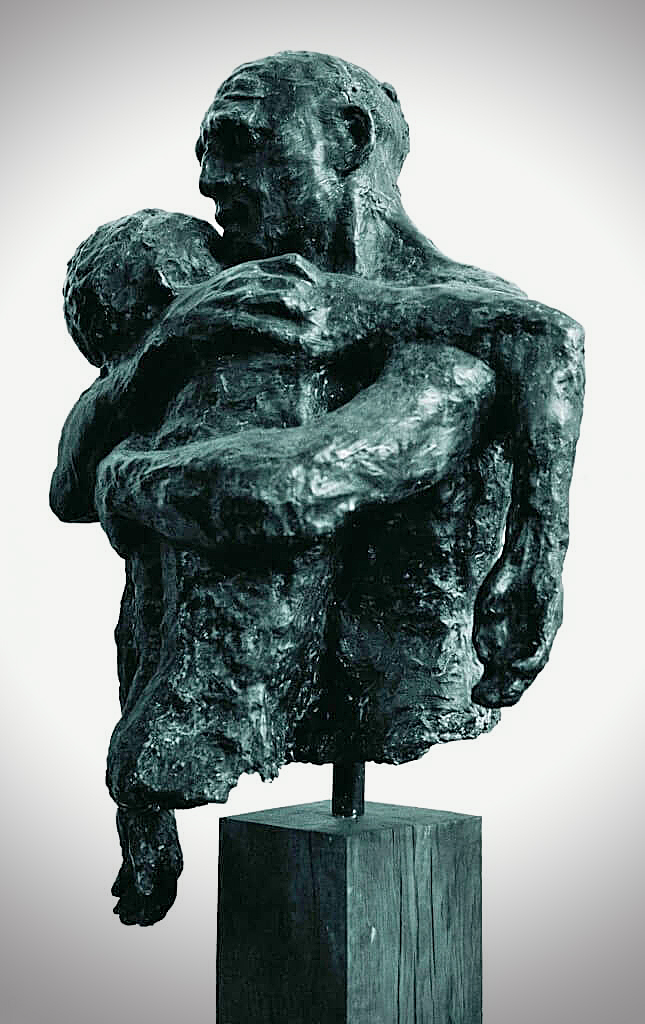I remember receiving Tim Keller’s book, The Prodigal God: Recovering the Heart of the Christian Faith, from my sister on my way out the door to college. Thinking about it now, I recall that at the time I had become deeply disillusioned by Christianity, disconsolate about my own moral failures, and ready to move on to something else for a sense of meaning. I was ready to restart, believe in something new, and become someone else. The first few months of college were exciting and overwhelming, but after some time, the newness of it all wore off and I was left with a profound spiritual and existential emptiness. I had thought that I might find something fresh and exciting, something to invest my life into. In reality, I had mostly just put on a new shell and a new mask to cover a deep and abiding sadness.
I was in the far country, a long way from home, and I had been there for a long time.
Mostly out of desperation, I remembered the book my sister gave me (which I had half-heartedly promised her I would read) and so I took to reading Keller’s interpretation of the Prodigal Son story.
I knew this old parable well. Most likely know it in some form. But I’d always assumed the point was more-or-less about the son realizing his mistakes, promising to do better and be better, and finding some conditional forgiveness in the process. What I didn’t realize was that this story was far more about the father than either of the sons. It is about his constant love and invitation, a father whose love extends deeply to his lost children at home and those faraway. Both to the profligate and to the self-righteous, the father’s love is unrelenting and his embrace is wholly encompassing. And in Christ, as Keller suggests, we meet the true-and-better elder brother, one who having everything of the Father, goes off to the far country to bring his brothers and sisters back to the home and are met with a lavish feast and celebration.

Sculpture by Charlie Mackesy.
It was difficult not to read myself into this parable as some blend of each brother, but the image of the fatherly embrace of the younger brother stuck with me. Despite all I am and all I’ve done, God in Christ extends himself to me and embraces me in his love. At the bottom of it all, I am loved in abundance and have a home where I belong.
Last Thursday, Michael, one of Keller’s sons, mentioned in a tweet a few words Keller said in a prayer in one of his last days. He said,
“I’m thankful for all the people who’ve prayed for me over the years. I’m thankful for my family, that loves me. I’m thankful for the time God has given me, but I’m ready to see Jesus. I can’t wait to see Jesus. Send me home.”
I once heard that Keller was deeply indebted to Henri Nouwen’s own interpretation of this parable in his The Return of the Prodigal Son: A Story of Homecoming (which I now believe is self-evident), and I could not help but think about this passage from Nouwen as I heard about Keller’s passing:
“Home is the center of my being, where I can hear the voice that says, “You are my beloved. On you my favor rests,” the same voice that gave life to the first Adam and spoke to Jesus, the second Adam. […] As the Beloved, I can confront, console, admonish, and encourage without fear of rejection or need for affirmation. As the Beloved I can suffer persecution without desire for revenge and receive praise without using it as a proof of my goodness. As the Beloved I can be tortured and killed without ever having to doubt that the love that is given to me is stronger than death. As the Beloved I am free to live and give life, free also to die while giving life.”
Keller made the gospel of grace believable for me and Jesus desirable to me — at a time when I desperately needed it. I’m thankful that, even at the end of his life, he continued to do that. I truly cannot count the number of friends and family I know who have been impacted by his life, teaching, and ministry. In his book, Nouwen proposed that part of coming home involves extending the embrace that we have received from the Father to others, and as far as I see it, Keller spent his life extending that invitation of homecoming to others.
On Friday, Tim Keller went home. His homecoming fully realized. In his final words, he said: “There is no downside for me leaving, not in the slightest.”
Thanks for helping us come home, Tim. Enjoy the embrace and the celebration.

COMMENTS
One response to “The Prodigal God I Needed”
Leave a Reply













[…] fast and furious, as well they should, and there’s not much I could say that Stephanie, Todd, Jeb, Meaghan or a hundred others haven’t already said. But I did want to add my voice to those […]